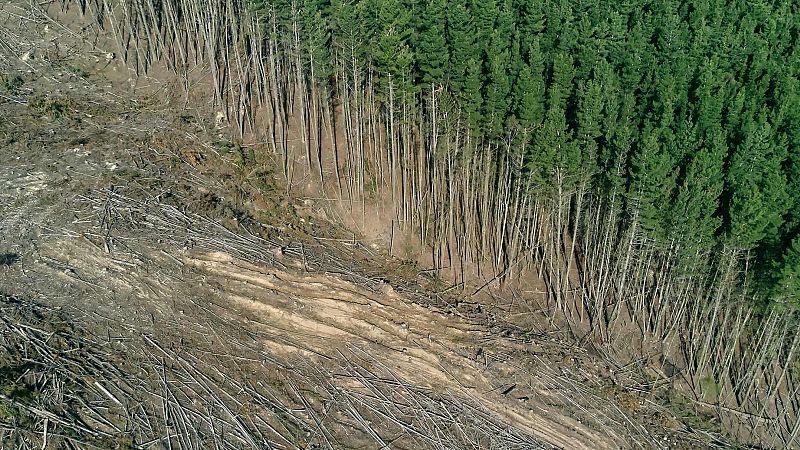
Deforestation in tropical regions is leading to a surge in heat-related deaths, according to a new study that highlights the growing human cost of forest clearance.
Published this week in Nature Climate Change, the research finds that local warming caused by tropical deforestation has already exposed more than 300 million people to higher temperatures and is associated with around 28,000 excess deaths every year – about half a million in the past 20 years.
In areas where forests were cleared close to population centres, the impacts were especially stark. Around 48 million people in Indonesia, 42 million in the Democratic Republic of Congo and 21 million in Brazil are already exposed to higher temperatures linked to forest loss.
Forest loss and rising heat risks
The study, led by Dr Carly Reddington and Professor Dominick Spracklen of the University of Leeds, analysed deforestation across Central and South America, Africa and South-East Asia. It found that removing tropical trees, which cool the climate through shade, moisture release and carbon storage, has exposed more than 300 million people to higher local temperatures.
“In areas of tropical forest loss, more than one third of all heat-related deaths were associated with deforestation,” the authors wrote.
And the impacts are “almost immediate – within days of the forests being cleared,” according to Spracklen.
“Forests keep the local climate cooler by pumping water from the soil to the atmosphere. When this water evaporates, it cools the local climate,” he explains.
“This is a bit like the body sweating on a hot day – when sweat evaporates, it cools the skin. When we cut down the trees, we stop this sweating process, and the local climate warms up. People living nearby will then start to experience this warmer climate immediately.”
How fast forests are disappearing
The findings add a new dimension to concerns over accelerating forest loss.
Earlier this year, a report from the World Resources Institute (WRI) and Google DeepMind found that 34 per cent of forest land – about 177 million hectares – lost between 2001 and 2024 is now permanent, as those areas are unlikely to regenerate naturally.
The largest cause of it was agriculture, which accounts for 95 per cent of permanent forest loss.
Europe’s delayed response
Europe is also under pressure to tackle its role in global forest loss. As farms, mines and infrastructure projects erase forests at alarming rates, the EU has struggled to enforce laws designed to keep products linked to deforestation off shelves. Last year, it postponed the introduction of its long-awaited Deforestation Regulation for 12 months.
The law was meant to take effect at the end of 2024, requiring suppliers of commodities such as palm oil, beef, timber and coffee to prove their production was not linked to deforestation. Non-compliant producers would have been barred from accessing the EU’s vast single market.
The rollout has been pushed back to the end of this year for large corporations and until 2026 for small- and medium-sized enterprises. That delay has raised concerns that deforestation-linked goods will continue flowing into Europe unchecked – a quietly recurring problem.
An investigation by the Bureau of Investigative Journalism last year revealed that five shipping companies were responsible for transporting over half a million tonnes of beef and leather products from Brazilian abattoirs linked to deforestation between 2021 and 2022 alone.
Forests as a health shield
The emerging science highlights how tropical forests act as a natural shield against deadly heat, plus a range of connected diseases.
Deforestation is associated with an array of problems detrimental to human health. According to the authors, smoke pollution from fires in deforested areas degrades regional air quality and has been linked to an increased risk of malaria.
Without stronger protection of existing forests, communities in the tropics face harsher living conditions, strained health systems and rising mortality from more than just heat.
“Our findings underscore the urgent need to reduce tropical deforestation,” Spacklen said.







